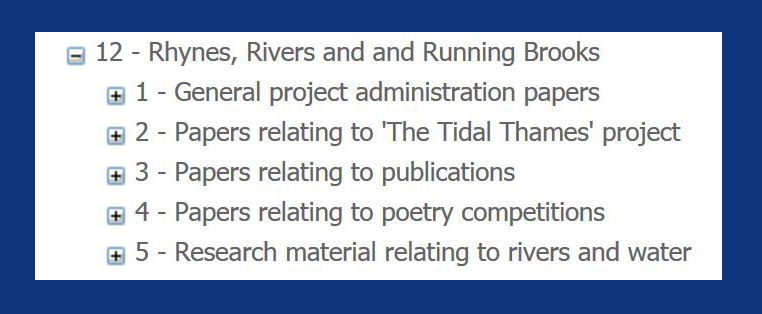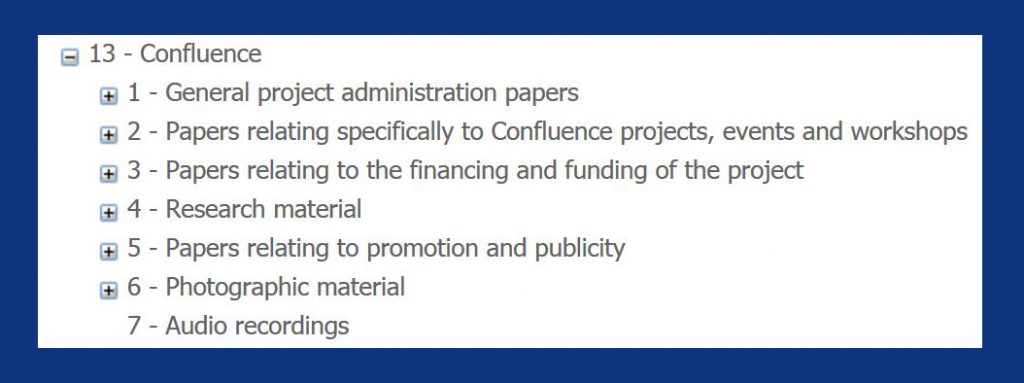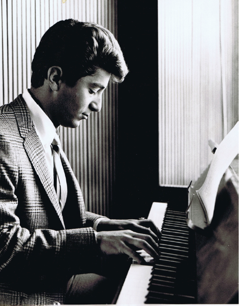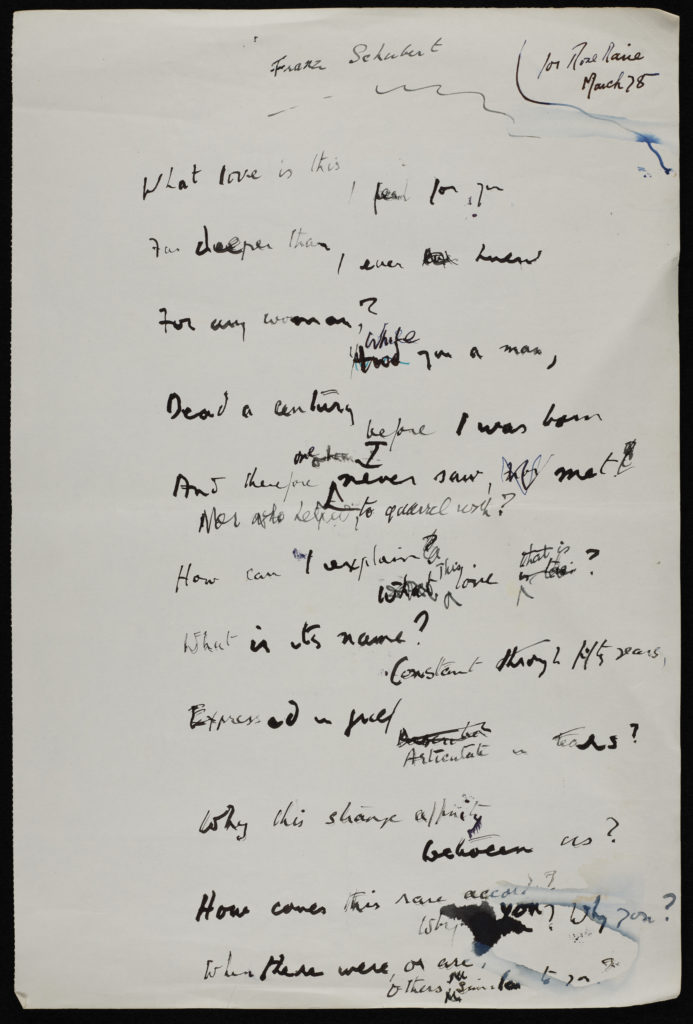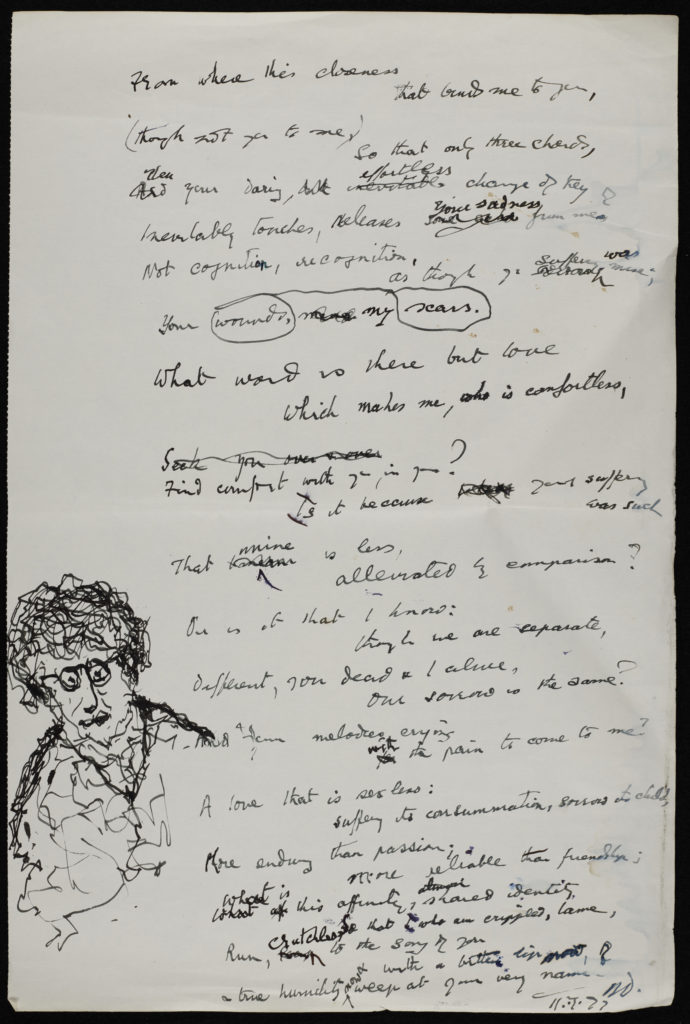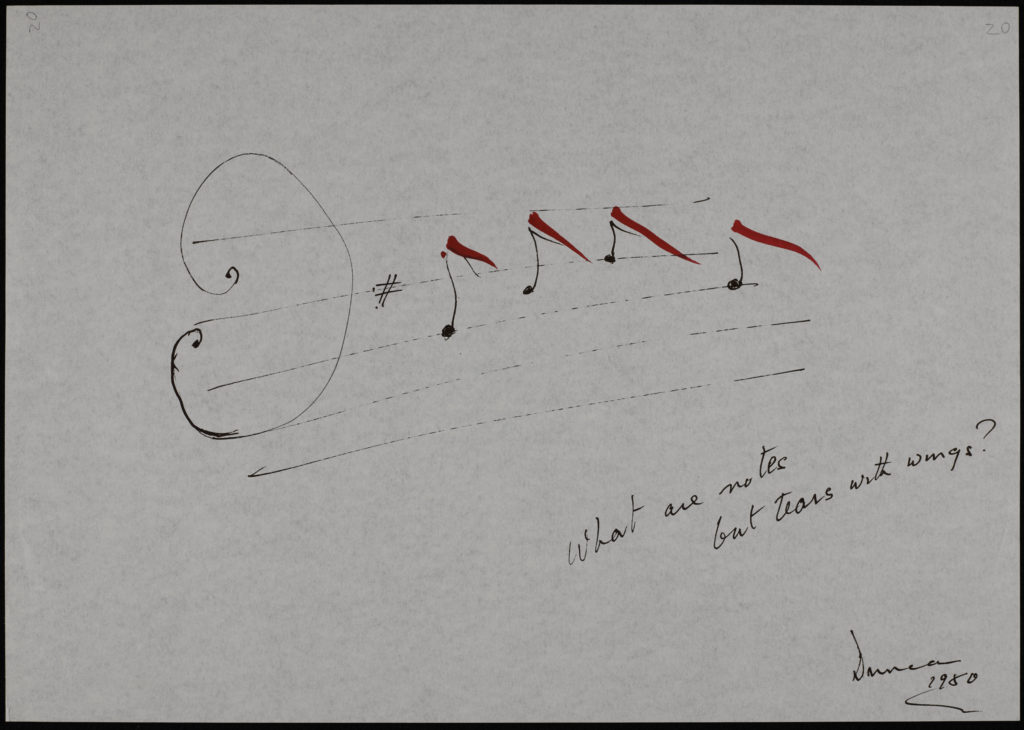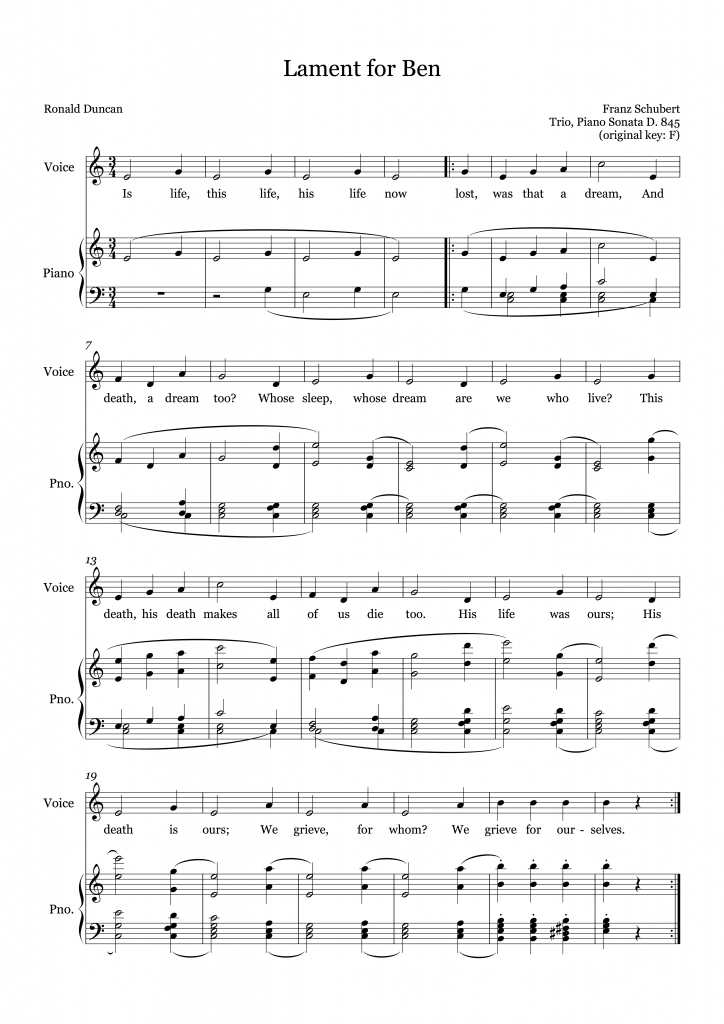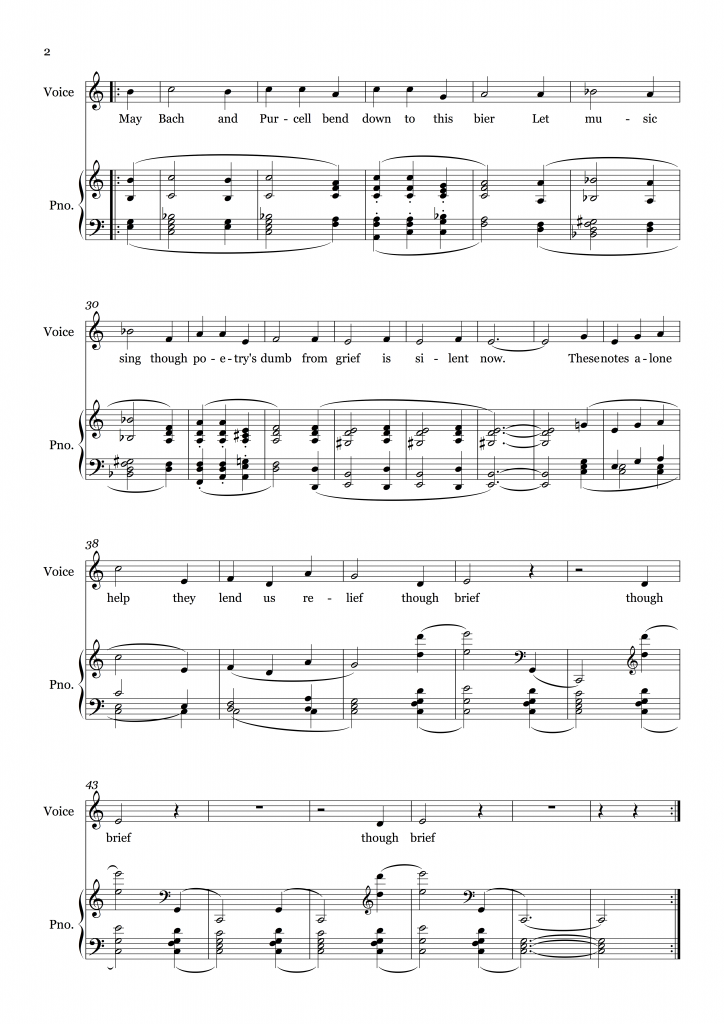The cataloguing of the Common Ground archive has had a very watery theme over the past two months… But, fear not! I take my responsibilities of preserving the archive seriously and no water has touched the material. Rather, the sections of the archive I’ve recently completed cataloguing concern two projects by Common Ground that relate to rivers and water: the Confluence project and the Rhynes, Rivers and Running Brooks project.
Rhynes, Rivers and Running Brooks
From the 1990s to the 2000s, the arts and envrionmental charity, Common Ground, conducted research and activity relating to rivers for its Rhynes, Rivers and and Running Brooks project. The project aimed to encourage people to value running water in their localities and get involved in its conservation through events and publications. As part of this programme of work, Common Ground also aspired to launch a ‘Thames Ballad’ project to help people in London create an epic poem about the relationship between people and water in the city. However, this project never came to fruition. Much of the research for the ‘Thames Ballad’ project later fed into the Confluence project.
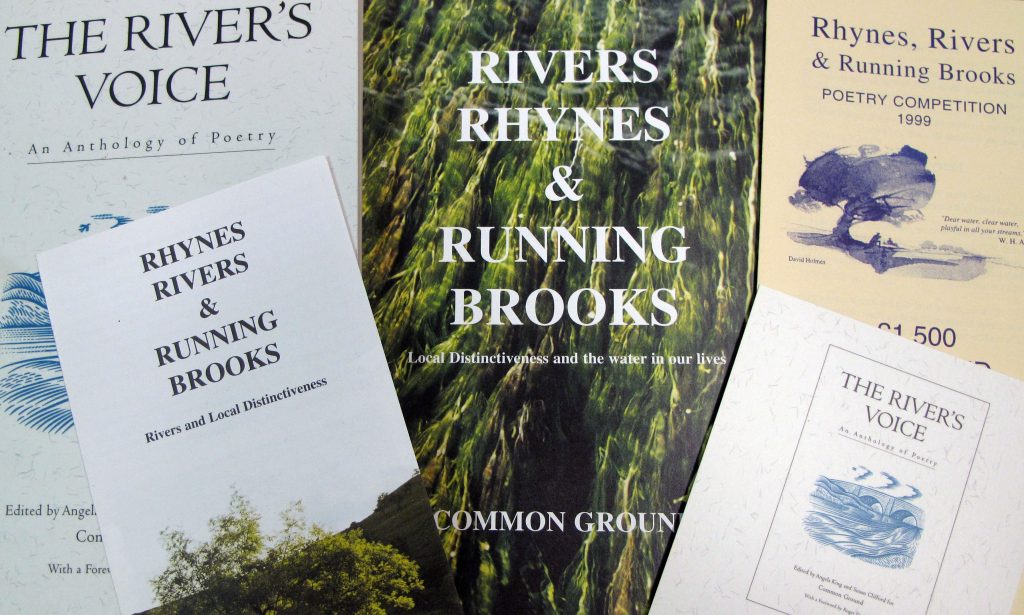
Publications and promotional material for the Rhynes, Rivers and Running Brooks project [EUL MS 416/PRO/12/3/7-8]
- general project administration papers;
- papers relating to the ‘Thames Ballad’ project, including project proposals, planning documents, correspondence, press releases, and notes;
- papers relating to publications;
- papers relating to poetry competitions;
- and research material relating to rivers and water.
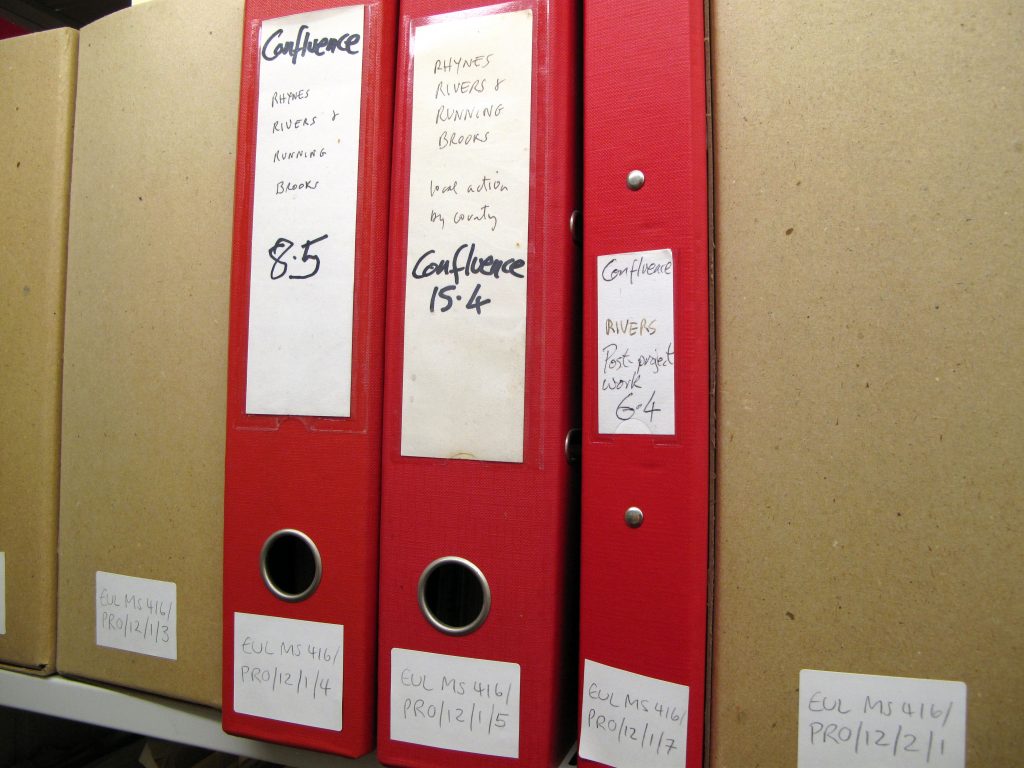
Archive files in the Rhynes, Rivers and Running Brooks section
You can find the full catalogue description for the Rhynes, Rivers and Running Brooks section here or by clicking the image below.
Confluence
Confluence was a three-year project which grew out of the Rhynes, Rivers and Running Brooks project and took place from 1998 to 2001. Common Ground aspired to enable, develop and encourage the creation of new music for the River Stour by delivering a series of participatory music workshops, courses, concerts and events involving people living in the River Stour catchment area, from the river’s source in Wiltshire, through Somerset and Dorset, and into the English Channel at Christchurch. The purpose was to draw people together to share local knowledge, and explore and express their emotional connection to the Stour through music. Helen Porter, the Music Animateur, was active in bringing people together to sing, write and perform, and Karen Wimhurst, the Composer-in-Residence, composed a range of original new works for the project.
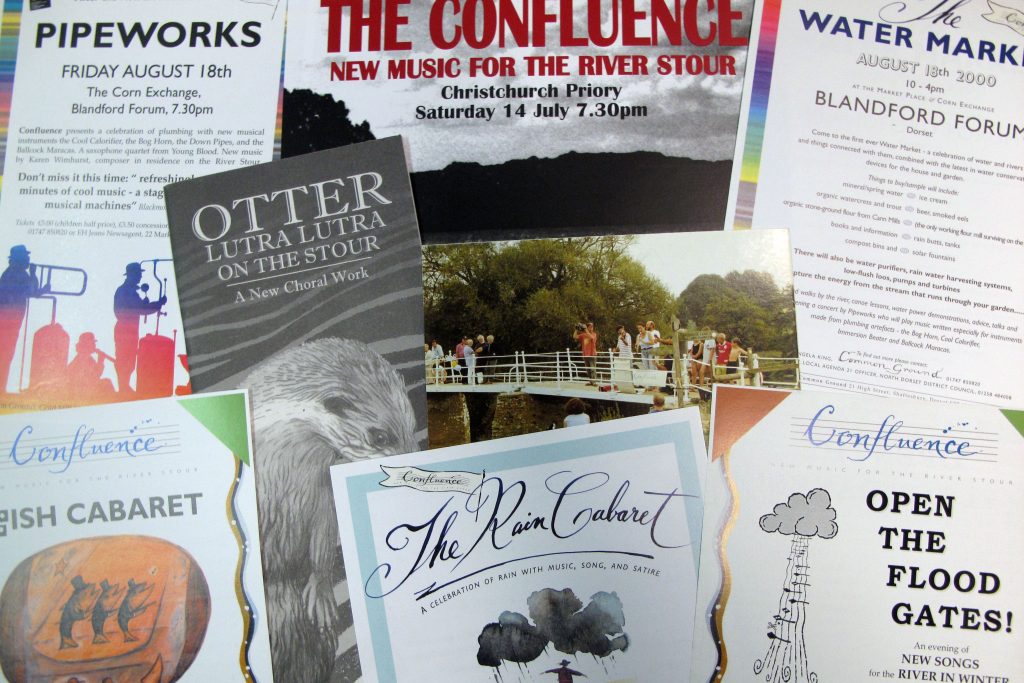
Confluence event posters, flyers, programmes and postcards [EUL MS 416/PRO/13/5/6]
- project planning papers, including proposals, timetables, meeting minutes, reports, and notes;
- papers relating to funding, including the complete funding bid to Arts for Everyone (A4E);
- papers relating to particular projects, workshops and events; sheet music and lyrics for music composed and performed during the project;
- feedback on the project from participants and audience members;
- photographic material, including prints, negatives and slides;
- CD recordings of original music composed for Confluence;
- press clippings; promotional material;
- and research material.
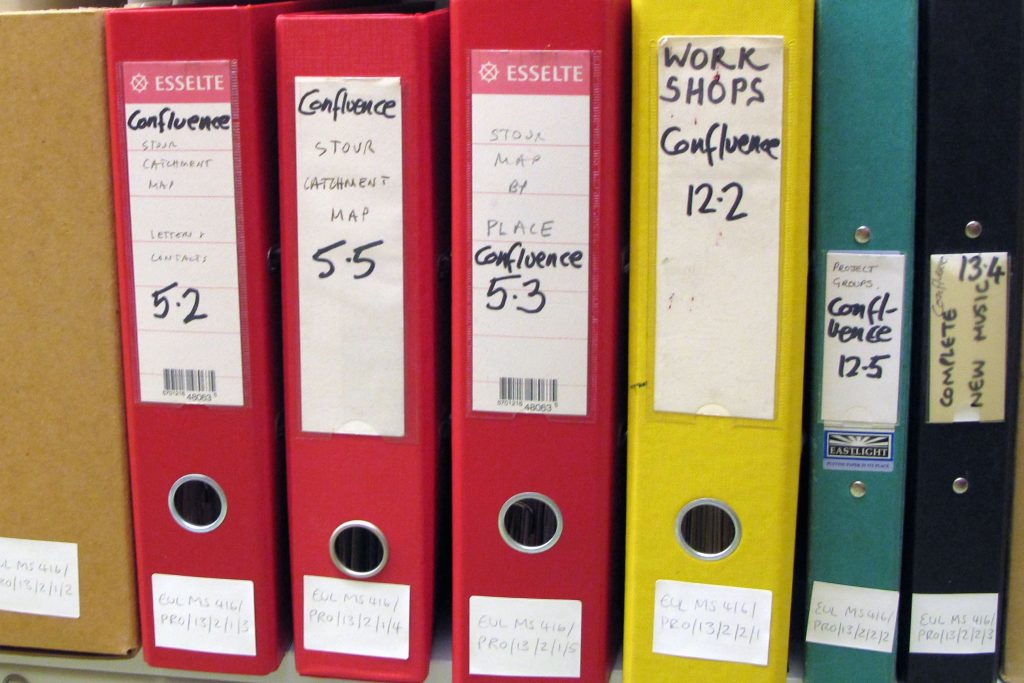
Archive files in the Confluence section
You can find the full catalogue description for the Confluence section here or by clicking the image below.
Although Confluence was a sub-project of the Rhynes, Rivers and Running Brooks project, Common Ground kept these files separate from each other, and the arrangement of the archive reflects this. However, there is some overlap between these two archive sections, so it is advisable to look at the catalogue entries for both sections when researching work by Common Ground on water and rivers. The Confluence project, in particular, has excellent potential for research as a case study of an arts project involving the local community, especially in regards to impact.
In July and August, I was very lucky to have the assistance of a volunteer, Charlotte, who catalogued and repackaged photographic material relating to Confluence (mainly prints, but also including some negatives and slides). Charlotte created 184 new file descriptions on our catalogue and repackaged the photographs into acid-free envelopes. I would like to say a huge thank you to Charlotte for all her hard work!
The next two sections of the Common Ground archive that I’ll be cataloguing concern projects relating to ‘Local Distinctiveness’, a term coined by Common Ground in the 1980s to explore the relationship between people and everyday places, and the bonds between nature, identity and place. The two sections are The Campaign for Local Distinctiveness and Gardening, Landscape Design and Local Distinctiveness. I hope to have both sections completed by the end of September, so do pop by again soon for the next update on the cataloguing project!
By Annie, Project Archivist
Why not start your exploration of the Common Ground archive via our online archives catalogue today?
You can also find out more about the Common Ground archive cataloguing project by taking a look back at our previous blog posts.
For more information on Common Ground’s river-themed projects, see the Common Ground website.
